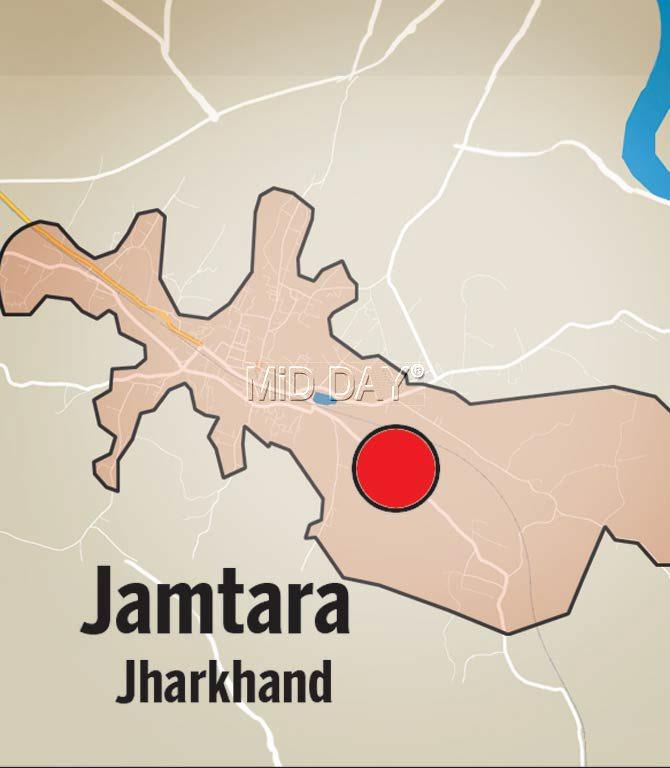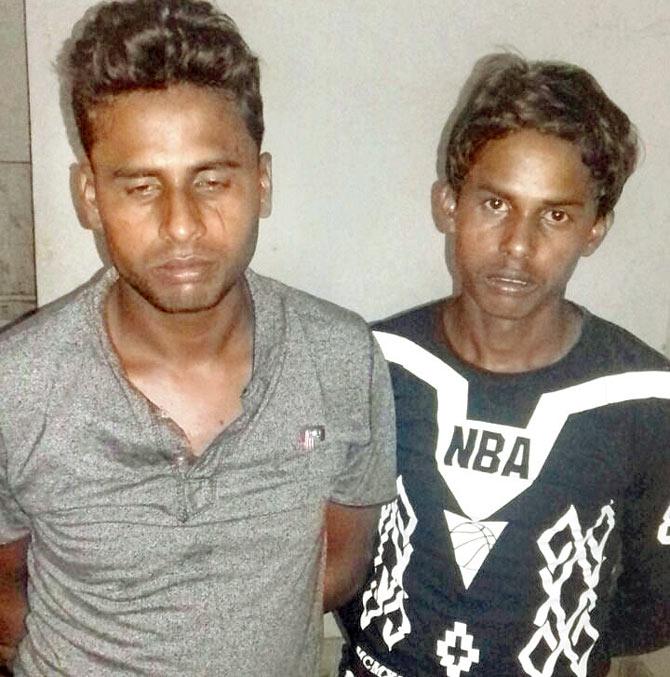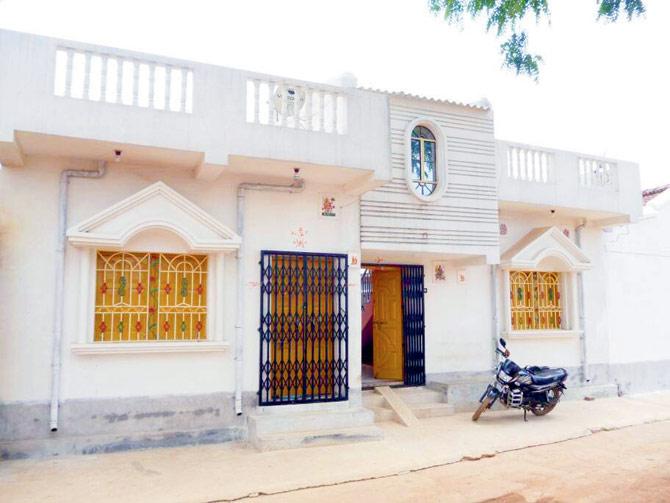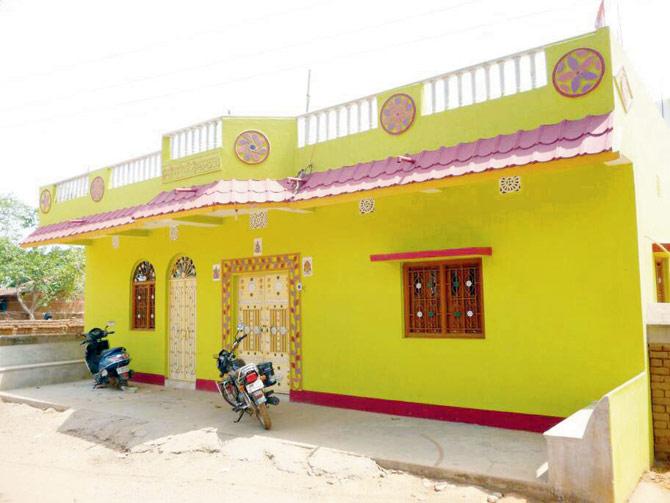Residents of villages in Jamtara district of Jharkhand are building Rs 80 lakh bungalows with money earned from duping Mumbai's netizens. Most of those involved in the crime have minimal schooling


The villagers usually work in pairs. Dialling any number at random, they first try and convince the victim of their presumed identity, mostly that of a bank staff
In the second week of June, a 38-year-old businessman from Marine Drive received a phone call from an executive of the bank with which he had a credit card. The executive, on the pretext of upgrading his credit card with an offer of increasing the credit limit, obtained the card's details of Rishiraj Anandan (name changed to protect identity) — CVV number, birth date, the 16-digit credit card number and expiry date of the card, along with several one-time passwords (OTPs) generated in a short time. By the time Anandan realised that he had become the victim of an online fraud, his card had been used to purchase goods worth Rs 3.56 lakh online. Worse, the "executive" had also used the card to get an instant loan of Rs 3 lakh.
ADVERTISEMENT

Once they've won them over, they ask the victim to furnish their bank account and debit card details
Like Anandan, Worli resident Sadashiv Uplekar (changed name) also didn't realise that the customer care executive from a bank who called him in June would dupe him of Rs 1.34 lakh in the name of updating an old debit card. Uplekar, too, shared his OTP with the executive. After finding that money was deducted from his account and spent on shopping for products which he didn't buy, he called back on the caller's number, but to only discover that they weren't available.
Also read: 4 Indians, 1 Pakistani plead guilty in call centre scam in US
These do seem like any other vishing (see box: Know your scam) fraud cases, multiple numbers of which have been registered across the city's several police stations. One, minor detail aside i.e. When the Marine Drive and Worli cops — where Anandan and Uplekar registered FIRs — traced the origins of the calls and the "executives", they found that the two had, like many others in Mumbai, become victims of a vishing fraud rooted in a district called Jamtara in Jharkhand. Oh, and Jamtara is notorious across the country for these frauds — cops from the district say that police officers come visiting almost every 15 days to trace and arrest the fraudsters.

The unsuspecting victim falls for the ruse and shares the 16-digit debit card number, including the OTP
Professional fraudsters of Jamtara
The population of Jamtara, a district with 1,175 villages (of which more than 50 are involved in the scam) that was created in 2001, stands at less than 8 lakh (according to the 2011 census).
For quite a few years, fraud has been a career of sorts here. The first case was registered in 2013.
Also read - Shaggy Tales: What we know about Mira Road call centre scam kingpin so far
The Sub-Divisional Police Officer of the district Pujya Prakash, while speaking over the phone from Jharkhand, says, "Most of those who have been arrested claim to be farmer, who turned to cyber crime after seeing the easy cash that can be made." Prakash adds, "The villages that till five years ago had huts, are now lined with large bungalows. And there's constant competition. If one family gets a R20 lakh bungalow, another will want to trounce them by building something that costs twice or thrice that amount. And, aside from bungalows most of the other cash is spent on purchasing electronic accessories or saved in varied bank accounts."
Ironically, most of those involved in the crime have minimal schooling.

Once the fraudster has acquired the details, he begins transacting money through e-wallets
Take the case of 19-year-old Bishnu Kumar Mandal from Kashitar village for instance. Arrested earlier this year, in his statement to Assistant Sub-Inspector, Prabhat Kumar of Karmatar police station on March 17, he said that he has studied till Std I and was into farming, like his father Subhash Mandal. "More than a year ago, I saw that my brother Pappu Kumar Mandal and a few other villagers, including Wakil Mandal, Prakash Mandal, Rohit Mandal, had turned to cyber crime and were earning good money on a daily basis."
This, he says, prompted him to join him. "I too wanted to get rich soon. So, I started calling people with the help of my brother and friends. The accessories seized by the police, including mobile, LED TV, air conditioner, laptop and even a motorcycle, were all purchased through online shopping. Also, all cash earned from cheating people has been saved in different banks," he has said. Among his other assets is a house worth R20 lakh, which he built in his village from the money earned from the fraud.

It's not an individual effort. The men often form groups and work together to swindle others.
Sitaram Mandal, 56, a resident of Kurwa village, in his statement on March 21, has said that attracted by the possibility of earning much more, he and his son Rahul joined others, naming eight others who were part of a 'dal' (group). "We claimed to be senior bank employees and would cheat people taking their bank account and pin details. With the help of e-wallet, the cash would be transferred in our account."

The fraudsters use the ill-gotten money from several victims to build bungalows in Jamtara. The villages that till five years ago had huts, are now lined with large bungalows. Illustration/Ravi Jadhav
The school of fraud
How does a former farmer overnight become a slick fraudster, able to trick even the most wary Mumbaikar? Coaching classes.
During interrogation, after raids conducted in 2016 — with help of the BSF and army — in the forested areas of Kamatar from where the operations usually take place, officers from the cyber cell of Buruch (Jharkhand) got information of coaching centres held under top secrecy.
Also read: After Mira road, another call centre duping US citizens busted in Thane
Malkesh Gohil, the investigation officer attached with Buruch cyber cell says, "No outsider can enrol for these classes. It's here that villagers would train fresh and young minds on how to make fraud calls, cheating people with sweet talk. They also train them in banking and transferring cash or online shopping. Even if a fraudster makes 100 calls a day and manages five victims, he could earn anywhere between Rs 10,000 to Rs 1 lakh a day — an amount he'd not make from an entire year of farming."
Gohil says they arrested two swindlers recently using the frauds' own technique.
"Once we got details of a bank account used by the fraudsters, we approached the bank manager and asked him to contact the account holder. They approach them claiming that they needed their PAN card. We then laid a trap, as we had a picture of the accused. We found that he made three to four rounds to the bank to check whether there was a trap. Only when satisfied that there was none, did they enter the bank. As soon as they did, we shut the doors and arrested them on the spot," Gohil adds.

Pradip Mandal and Pradhuman Mandal, from Karmatar village, were arrested by the Jamtara police a fortnight ago and were handed over to the Odisha police. Pujya Prakash, the senior divisional police officer of Jamtara police said, "The duo had made a vishing call to people in Odisha. The Odisha police shared their details a month ago, but when we raided their homes, we found them missing — they tend to get information about raids. So, we kept a spy, and with the help of local sympathisers, continued keeping a watch. As soon as we got to know that they two were around, we conducted a raid at their homes and arrested them. The house in which they reside was built after spending more than Rs 20 lakh."
The slippery Ansaris and Mandals
The one thing that the cyber cell has found common in its arrests is that all the accused either bear the surname of Ansari or Mandal. Even then, nabbing them is usually a tough job.
For starters, their network extends to other cities.
In 2016, the cyber cell of Madhya Pradesh police tracked the fraud to an address near Delhi where the delivery of several purchases made online from a defrauded card were to be made. "We found that the accused is an account holder from Delhi and had made purchases through an e-wallet. We contacted the online portal and got the delivery held over. As soon as we reached Faridabad, we went to the address pretending to be a delivery boy. When we raided the residence, we found more than 50 laptops, mobile phones and other electronic items," says Aditya Sahu, an official from the department.
The man they arrested confessed, but asserted that he was just a small fish. The masterminds were in Jamtara. "All those who operate from Jamtara have their relatives or friends working in Metro cities like Delhi, Bengaluru or somewhere in West Bengal, among others. Their Jamtara counterparts get in touch with them and operate the business, sharing the profits. We arrested one villager from Jamtara but it took almost four months to reach Jamtara and we never thought it would turn out to be the hub of cyber criminals, the typical villagers wearing dhoti and shirt. It was hard to believe that the farmers, barely Std VIII pass, were cheating thousands of educated people with just their sweet talking skills," added Sahu.

House built by Sitaram Mandal of of Kurwa village
And, though the fraudsters would sell items purchased at Rs 50,000 for Rs 30,000, it was still a profit. "Most of the fraudsters are in the 15-25 age group. They would earlier operate from the terrace of their homes, but the risk involved in the business doesn't allow them to take rest. They rarely, if ever, sleep at home fearing police action and operate from the jungle from 10 am to 6 pm. Two people work at a time. One lures the customer over the phone and once he gets the debit/credit card details and OTP, the other guy does the online shopping," added an officer from MP cyber cell. That everyone here has a 4G internet helps ensure connectivity.
A senior officer from the Buruch police claims the local police has only recently become co-operative. "Often, when we'd visit the local police stations, we noticed that the senior officer would contact the village home guard who would visit the resident of the accused to check his presence, alerting the accused. Therefore, on raiding the place, investigators won't be able to trace the accused as many fraudsters of the village would have fled by then. Additionally, most call centres are operated from forested areas," he added.
Police Inspector Sunil Pawar, earlier posted with the cyber cell department of Pune police, says that tracing accused in vishing cases is a tough task. "In 2015, we first got the link to the accused by tracing the mobile number. But when we traced him we discovered that it was in the name of some other person, who has nothing to do with the crime. Later, we tried to trace the accused with the help of bank accounts, but that too didn't yield any result, as there was no KYC (know your customer) done before opening an account. We arrested two persons from Jamtara after almost two months, but they were released on bail within a week. They never attended a single court proceeding. They change their operating place and it's tough to trace them again. They take advantage of the loopholes of our legal system," he adds.

House built by Bishnu Kumar Mandal, 19, from Kashitar village
New cop, more arrests
The tide turned for Jamtara with the appointment of Superintendent of Police Dr Jaya Roy, an IPS officer, in December 2016. While last year, 40 cases were registered, in the last seven months, 50 cases have been registered and 100 arrested. The cases were registered under sections of the Indian Penal Code and different section of the Information Technology Act. "In most cases, we seized huge quantities of mobile phones and SIM cards which were being used to commit the offence. Once the SIM is used to dupe someone they throw it and never use it again," adds Roy. "In the past few months, we have visited different villages in the district in Jamtara, creating awareness among the villagers, educating them about importance of education for their kids to get good jobs so that they need not opt for a life of crime."
 Subscribe today by clicking the link and stay updated with the latest news!" Click here!
Subscribe today by clicking the link and stay updated with the latest news!" Click here!







